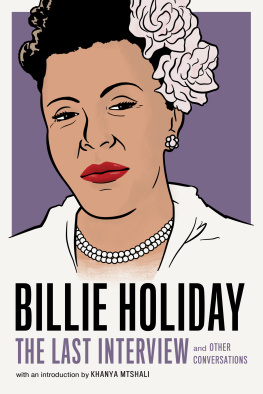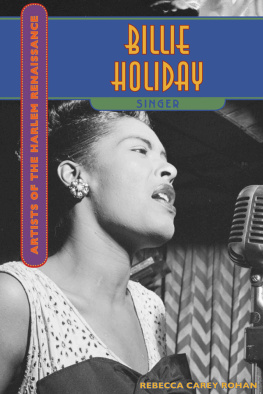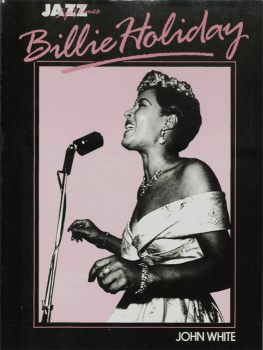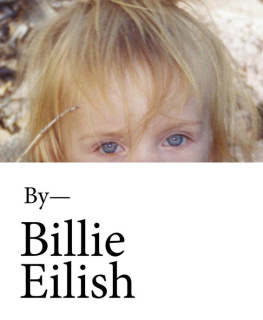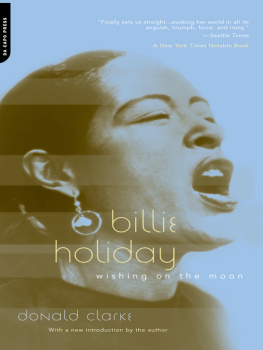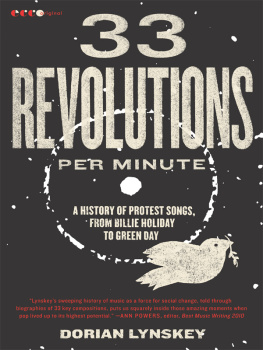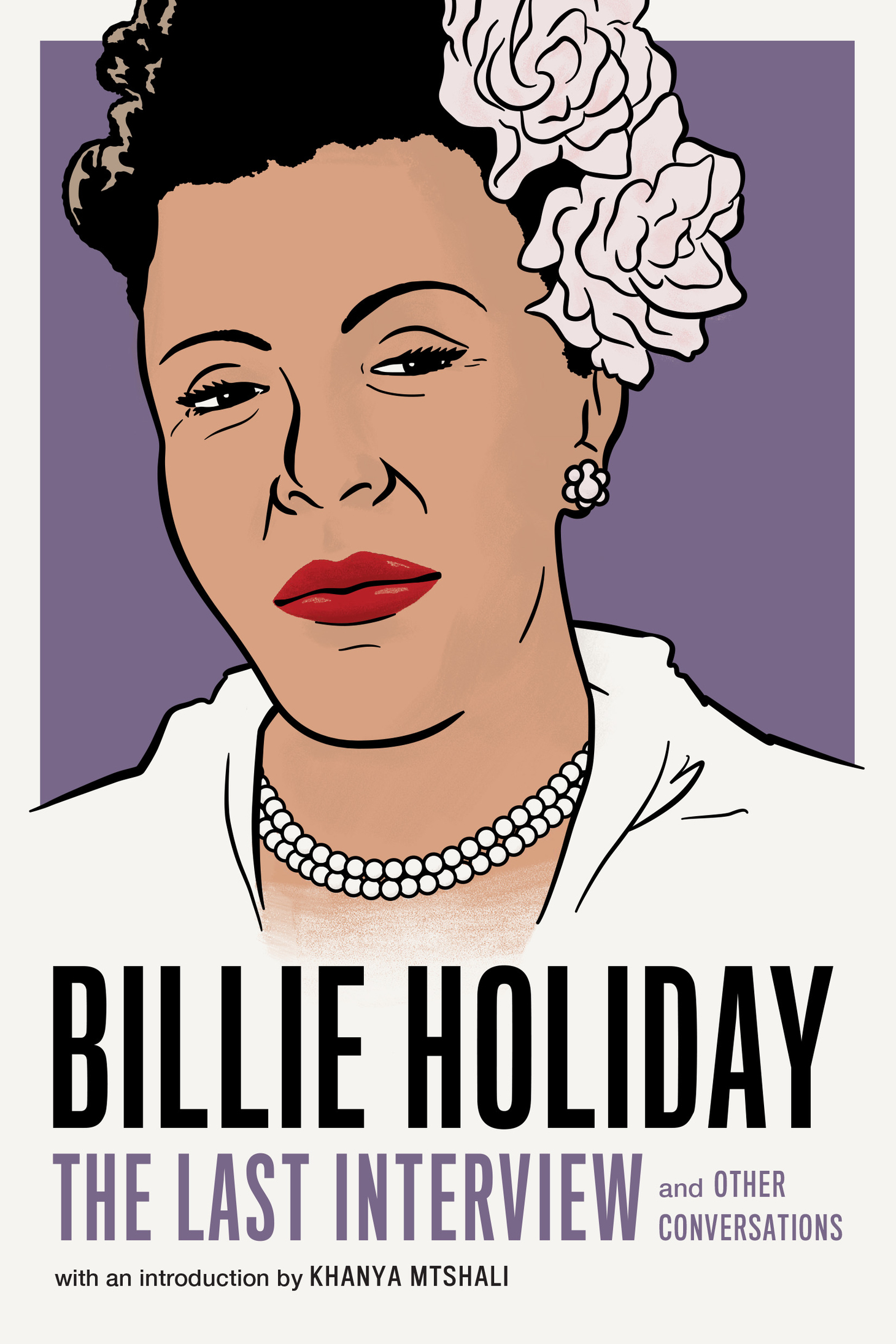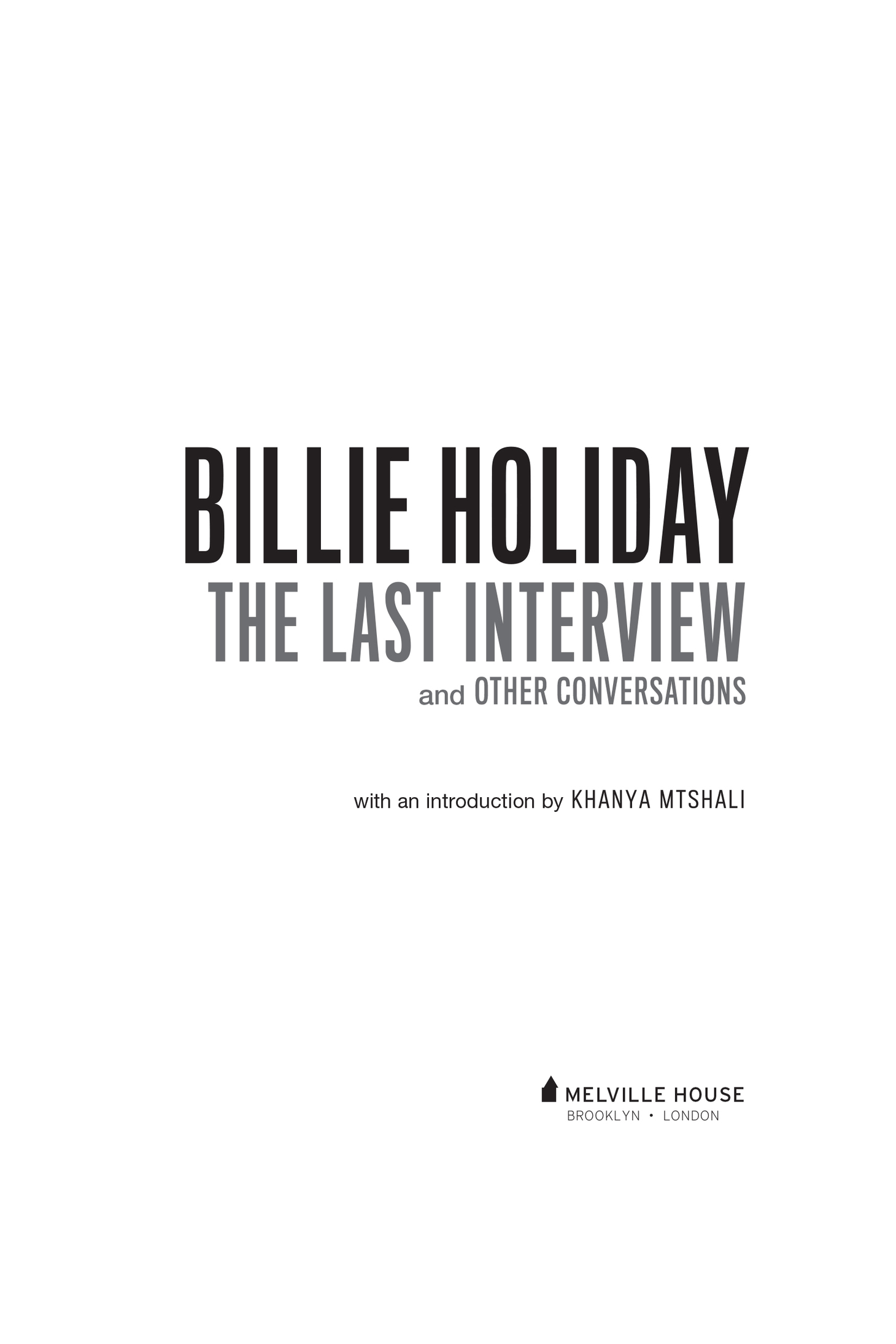Interview with Dave Dexter, Jr.
Taken in the office of the Supervising Custom Agent, Varick Street, New York 14, N.Y., Room 455
3:40 p.m. on January 15, 1959
INTRODUCTION
KHANYA MTSHALI
Over a montage of photos featuring white crowds gathered under trees bearing the hanged bodies of black men and women, I heard the opening lines to Billie Holidays Strange Fruit. At the time, I was sixteen and home alone, watching back-to-back documentaries on TV because I assumed thats what serious and smart adults did in their free time. The name of this particular documentary escapes me, but I do recall feeling briefly disconnected from my mind and body as I listened to this haunting, melodic voice drone over each lyric of this violent southern gothic. Delivered with an intense and stirring moral clarity, something seemed eerily familiar about the violence described by Holiday in this pastoral scene of the gallant South.
Though my upbringing in post-apartheid South Africa had been an entire world away from Billie Holidays America, Strange Fruit reminded me of the times my grandmother would recount the tyranny of living under the apartheid regime, where she was forced to bury the bodies of school-going children, wake up to the smell of gunpowder and tear gas, and hear about the death of a loved one over the radio. What Holiday created was something akin to a communal obituary for the premature deaths of black people at the hands of white supremacy. Strange Fruit may have been a black American meditation on the brutality of racism, but to me, it also came to represent the suffering and survival of all descendants of the African continent.
From that moment on, I decided I needed to hear more of Billie Holiday. I proceeded to download every single song of hers I could find on the free-MP3 platforms of my youth, hating myself for letting her brilliance be filtered through this illicit world of terribly designed websites riddled with computer viruses. I felt guilty for allowing someone of Holidays stature to fall victim to the post-album, free-for-all mess of early-aughts internet culture, but at least, I selfishly reasoned, I now owned some of her music.
Holiday didnt make too many film appearances, and some of the footage from her TV appearances has been lost, leaving just a trail of audio behind. But as YouTube began to stretch its wings, I searched high and low for anything video-like, stumbling on a clip of hers which struck me as one of her finest performances. In Symphony in Black: A Rhapsody of Negro Life, a short musical film directed by Fred Waller and composed by Duke Ellington in 1935, Holiday makes a brief and uncredited cameo. She was just nineteen at the time. The film, which explores the realities of everyday black life in America, splices shots of Ellingtons orchestra in performance and ordinary black people working, dancing, and singing. Holiday comes into focus about three minutes in, emerging from the black of the night, and staring into the apartment window of her former beau dancing with his current belle. As her old lover comes out of his apartment building, Holiday throws herself at him, begging for his affections. He, in turn, rejects her advances, and pushes her to the ground.
Dejected, Holiday eventually lifts her face and launches into the opening lines of Ellingtons Saddest Tale:
The saddest tale on land or sea
Was when my man walked out on me
Holiday is captivating in her role as the forlorn lover whose man has moved on while she still mourns their relationship. While other singers delivered unrequited love songs in a direct, one-dimensional way, Holiday layered her performances with high emotional stakes, giving these songs a life-or-death quality. Her appearance in Symphony in Black would define her as the unofficial queen of torch songs, typical of the Tin Pan Alley era of the early twentieth century. While these sometimes thin and formulaic songs about romance and heartbreak may have been beneath Holidays crisp phrasing and horn players knack for improvisation, she was able to elevate them into dramatic ballads worthy of an imperial romance.
Like many Billie Holiday fans, the more I learned about her personal history, the more protective I got over her legacyso much so, that I refused to watch Diana Rosss performance in the 1972 film Lady Sings the Blues, because Id read that it depicted her life as a tragic pantomime. Holiday was born Eleanor Fagan Gough (or Elinore Harris, according to some records) on April 7, 1915, in Philadelphia, Pennsylvania. She spent her formative years in Baltimore, Maryland, where she was shuffled between different relatives while her mother struggled to get regular work as a maid. In one of the interviews included here, Holiday claims her father, Clarence Holiday of the Fletcher Henderson Orchestra, became less present in her life after he remarried when she was ten. Around that time, Holiday was reported to have been raped and then sent to Catholic reformatory school for about two years. After leaving with the help of relatives, she moved to New York with her mother, where they began engaging in sex work to make ends meet. Holiday was only fourteen.

